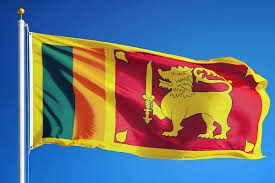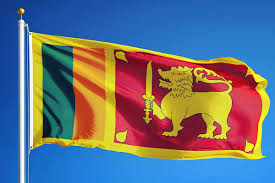
The prime minister of Sri Lanka says that the economic chaos hit island nation would require at least $5 billion over the next six months to pay for vital supplies amid the country facing its worst economic crisis in more than 70 years. Ranil Wickremesinghe informed parliament that the funds are required for basic necessities such as food, fuel, and fertiliser.
For the first time in its history, Sri Lanka defaulted on its loans to international lenders in May. The country has been in talks with the International Monetary Fund about a bailout.
Wickremesinghe, the country's finance minister, told parliament on Tuesday that more money was needed this year to cover Sri Lanka's fundamental necessities.
He stated that the island nation, which has a population of about 22 million people, required $3.3 billion in petroleum imports, $900 million in food, $600 million in fertiliser, and $250 million in cooking gas.
It comes as Sri Lankan lawmakers accepted a $55 million loan from India's Exim Bank for fertiliser. The UN also intends to launch a global appeal for Sri Lanka, and has given $48 million for food, agriculture, and healthcare, according to Wickremesinghe.
He also predicted a slowdown in government payments to businesses and workers across the country as monies are reallocated to pay for food.
"A lot of people will be without food, so the food programme we are initiating will ensure that all families, even if they have no income, they will have food," Wickremesinghe said.
"We can have community kitchens in temples [and] churches to supply the food. The community has to get involved," he added.
The South Asian nation will also try to renegotiate a $1.5bn financial support deal with China, Wickremesinghe said.
Sri Lanka is experiencing its biggest economic disaster since winning independence from the United Kingdom in 1948. The epidemic, rising oil prices, and populist tax cuts have all had a significant impact on the country's economy. A lack of medicines, fuel, and other necessities has also contributed to record-high living costs.
In May, Sri Lanka's official rate of inflation, or the rate at which prices grow, increased by 39.1 per cent year on year. At the same period, food prices in Colombo, the country's largest city, soared by 57.3 per cent.
Wickremesinghe will present an interim budget next month, facing the dilemma of reducing overall government spending while maintaining social assistance payments.
Last week, Sri Lanka's agricultural minister urged farmers to plant more rice, claiming that the country's "food situation is deteriorating."
The administration also promised an immediate rise in the value added tax (VAT) from 8 per cent to 12 per cent. The move was intended to increase revenue by 65 billion Sri Lankan rupees ($181 million). It further stated that corporation tax would be raised from 24 per cent to 30 per cent in October.
(Source:www.dtnext.com)
For the first time in its history, Sri Lanka defaulted on its loans to international lenders in May. The country has been in talks with the International Monetary Fund about a bailout.
Wickremesinghe, the country's finance minister, told parliament on Tuesday that more money was needed this year to cover Sri Lanka's fundamental necessities.
He stated that the island nation, which has a population of about 22 million people, required $3.3 billion in petroleum imports, $900 million in food, $600 million in fertiliser, and $250 million in cooking gas.
It comes as Sri Lankan lawmakers accepted a $55 million loan from India's Exim Bank for fertiliser. The UN also intends to launch a global appeal for Sri Lanka, and has given $48 million for food, agriculture, and healthcare, according to Wickremesinghe.
He also predicted a slowdown in government payments to businesses and workers across the country as monies are reallocated to pay for food.
"A lot of people will be without food, so the food programme we are initiating will ensure that all families, even if they have no income, they will have food," Wickremesinghe said.
"We can have community kitchens in temples [and] churches to supply the food. The community has to get involved," he added.
The South Asian nation will also try to renegotiate a $1.5bn financial support deal with China, Wickremesinghe said.
Sri Lanka is experiencing its biggest economic disaster since winning independence from the United Kingdom in 1948. The epidemic, rising oil prices, and populist tax cuts have all had a significant impact on the country's economy. A lack of medicines, fuel, and other necessities has also contributed to record-high living costs.
In May, Sri Lanka's official rate of inflation, or the rate at which prices grow, increased by 39.1 per cent year on year. At the same period, food prices in Colombo, the country's largest city, soared by 57.3 per cent.
Wickremesinghe will present an interim budget next month, facing the dilemma of reducing overall government spending while maintaining social assistance payments.
Last week, Sri Lanka's agricultural minister urged farmers to plant more rice, claiming that the country's "food situation is deteriorating."
The administration also promised an immediate rise in the value added tax (VAT) from 8 per cent to 12 per cent. The move was intended to increase revenue by 65 billion Sri Lankan rupees ($181 million). It further stated that corporation tax would be raised from 24 per cent to 30 per cent in October.
(Source:www.dtnext.com)





